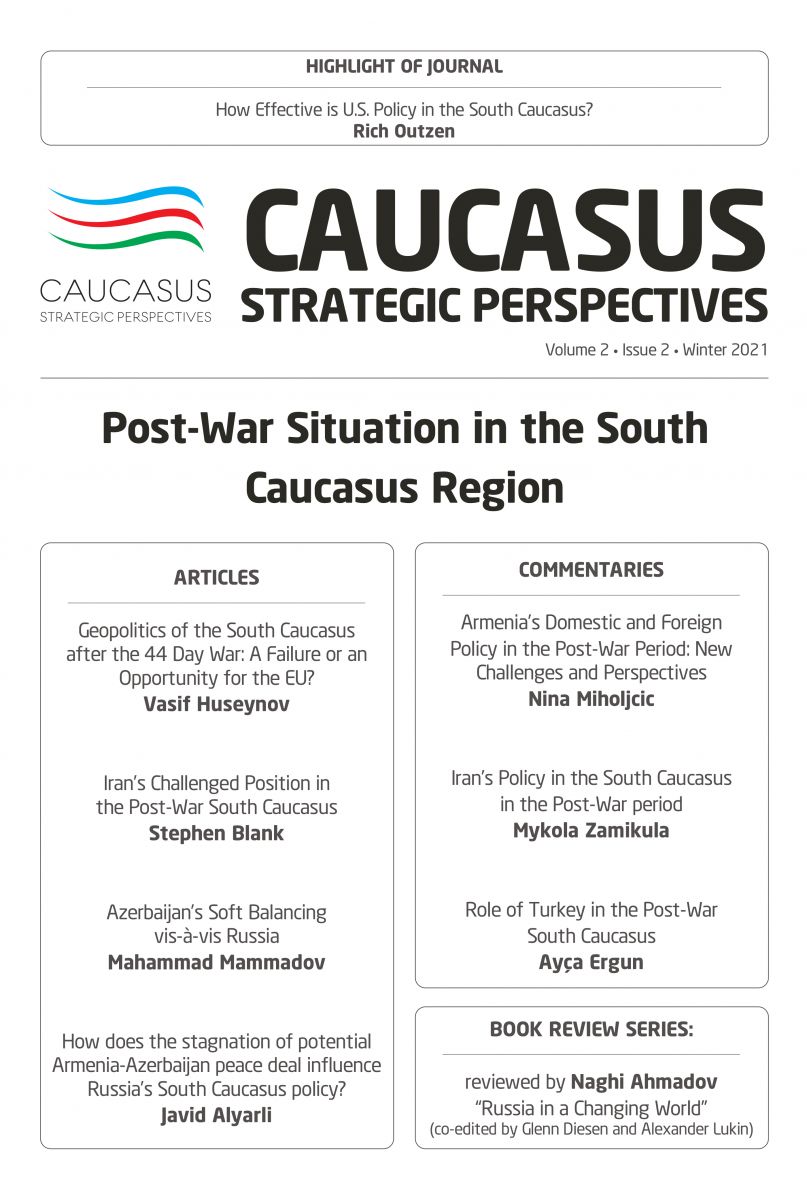Azerbaijan’s Soft Balancing vis-à-vis Russia
Soft balancing vis-à-vis Russia has long been embedded in Azerbaijani foreign-policy thinking, based on the assumption that Baku could use non-military tools to neutralize challenges emanating from Russia without directly questioning its hegemonic position in the wider neighbourhood. Diplomatic, economic, and security linkages with the alternative power poles were built in such a way that Azerbaijan could impose constraints on the exercise of power by the Kremlin while avoiding the fate of Georgia and Ukraine, thereby enabling it to seek its own agenda with regard to its strategic partnership with Russia. In this context, the battlefield victory over Armenia in the Second Karabakh War in 2020, Russia’s eventual deployment of its peacekeepers to Azerbaijan’s Karabakh region, and Turkey’s more active involvement in South Caucasus affairs created a new geopolitical architecture in this region according to which Azerbaijan had to adapt its balancing policy to the new realities on the ground. On the one hand, Russia’s military presence in Azerbaijan affords it certain leverage to influence Baku’s foreign policy calculations in case Moscow perceives anything detrimental to its vital interests in the region. On the other hand, Azerbaijan’s domestic politico-economic stability, deepening energy partnership with the EU, and closer military-economic partnership with Turkey bolster its soft balancing capabilities to alleviate potential Russian pressures. Drawing on the theoretical literature on soft balancing, this article discusses in detail the key indicators of Azerbaijan’s soft balancing in relation to Russia before and after the Second Karabakh War and explains how it helped navigate Azerbaijan’s foreign policy through the complex regional order. The article concludes that this way of proactive foreign policy behaviour has, so far, enhanced Azerbaijan’s value as a strategic partner for Russia and the other major power centres and strengthened its relative position in the regional distribution of power.
Latest news
- 12/27/2024 Call for Submissions-Caucasus Strategic Perspectives, Volume 6, Issue 1, Summer 2025 672 views
Popular articles
- 07/18/2022 The Russia–Ukraine War: Perspective of Azerbaijan 4336 views
- 10/14/2020 The Non-Aligned Movement: In Pursuit of Validity and Relevance in the Contemporary Global Order 3315 views
- 10/14/2020 Vicious Circle of the South Caucasus: Intra-Regional Conflicts and Geopolitical Heterogeneity 3293 views
- 10/14/2020 Relevance of Non-Alignment for Azerbaijan’s Foreign and Security Policy 3024 views





